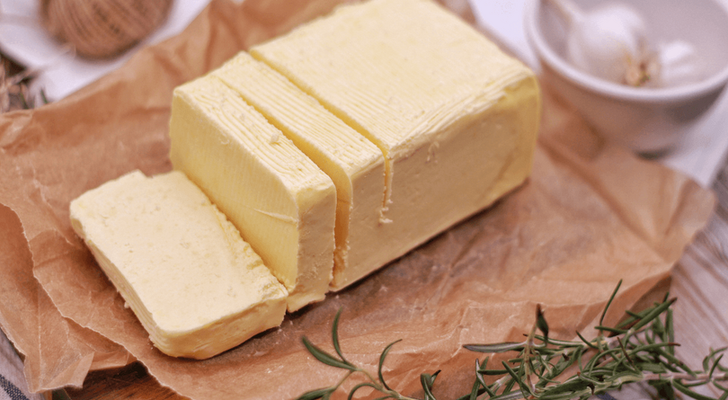Muslim religion comes with a lot of sacred orders that provide a guiding path to the followers. The concepts of halal and haram are also prescribed in the Holy Quran. Halal refers to the list of things that are allowed in the religion whereas Haram refers to things that are not allowed or considered to be against the Muslim religion.
Get a free sample pack!
Can Butter be considered as Halal?
Now, there are different types of butter. The one that we make at home created out of milk is extremely pure. Nothing haram about that. However, the butter that we buy from the market is not necessarily always pure. Butter goes through a complex process when the companies have to produce it in bulk and more importantly, want to maximise their profits.
As we all know, butter is made by churning milk and then pasteurising it. However, when it comes to factory butter, they centrifuge the milk and use the cream of milk to create butter. This cream of course has to be separated from the milk. This milk is also in turn sold as skimmed milk or low-fat milk because the layer of cream has been removed from it.
To make the best out of it, the cream and milk are separated using a sieve with very refined pores. This sieve is more likely to be made out of pig gelatin to make it high quality. This is where the question of halal or haram comes in. But again, this differs from madzhab to madhhab. As pork-related material is not directly used in the edibles, this might be considered halal. However, some households are strictly against any usage of pork-related material even in the process.
There are certain butter producing companies that might have gotten a Halal certification. You can inquire about products' legitimacy through their websites and then go with those brands as their processing and manufacturing has been verified by personnel to be completely halal. See all the answers in one place before deciding on buying certain products.

Another thing to consider is the additives used in the butter. Sometimes to enhance the flavours of the butter or to make it last longer, additional preservatives and flavourings are added to the mix. These additives can be alcohol-infused and thus can go against the halal rules.
Moreover, the butter that is created in bulk for commercial purposes might not be made purely out of milk content. Sometimes brands use a little mix of whey in the butter-making process. Whey is a by-product obtained from cheese production. Whether cheese is halal or not is a whole other discussion. It includes a lot of animal enzymes which puts it in a questionable position and in turn also affects the 'halal-ness' of whey.
You might be aware of the term whey from all the branded protein shakes. Whey is the premium ingredient in all protein products because of its high protein content. Now, this protein content can also include animal enzymes. If this also contains pig-derived enzymes then the whey would be considered haram. This would also make the butter haram for you.
If you are a health-conscious foodie and go for low-fat butter very often then let's evaluate that as well. You can always go for multivitamins and vegan gummies if you are looking for healthy Halal products. As a universal fact, low-fat butter tastes yuk, and that's how it should be. When butter is further skimmed off the fat, it also rips it off its texture and taste. If your low-fat butter tastes good then some additives in it shouldn't be there. Yes, you guessed it right, pig gelatin. Most of the time, pig gelatin is added to low-fat butter to make it tastier. This ultimately makes your butter non-halal.

Final words
Again, there are a lot of companies that are legitimate and are halal certified like Chewwies who create products friendly for the Muslim community. Such brands are your saviours. You can trust them and purchase various products without any worries and know that they will be halal. So, there you go! Enjoy your meals now with some halal butter!


